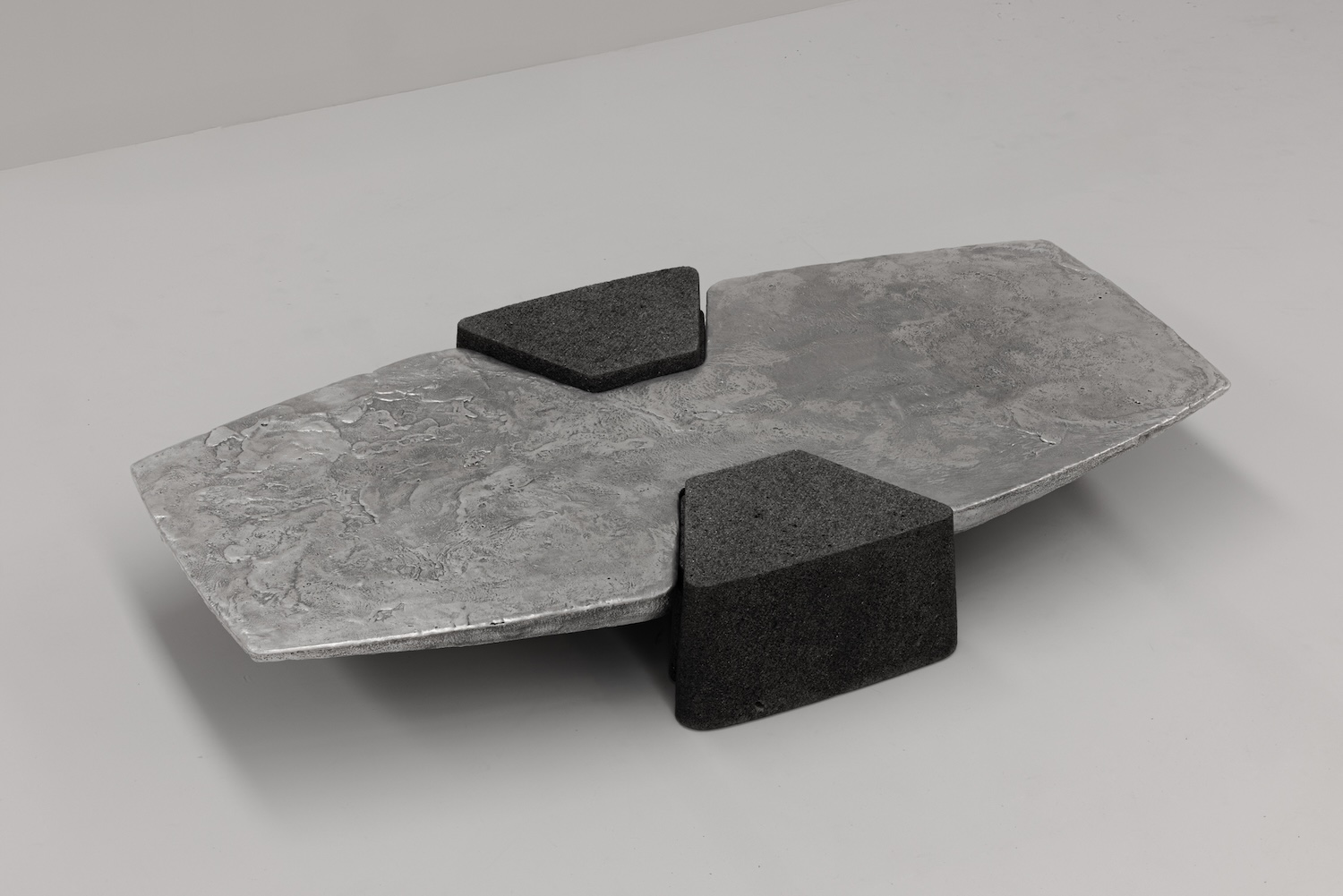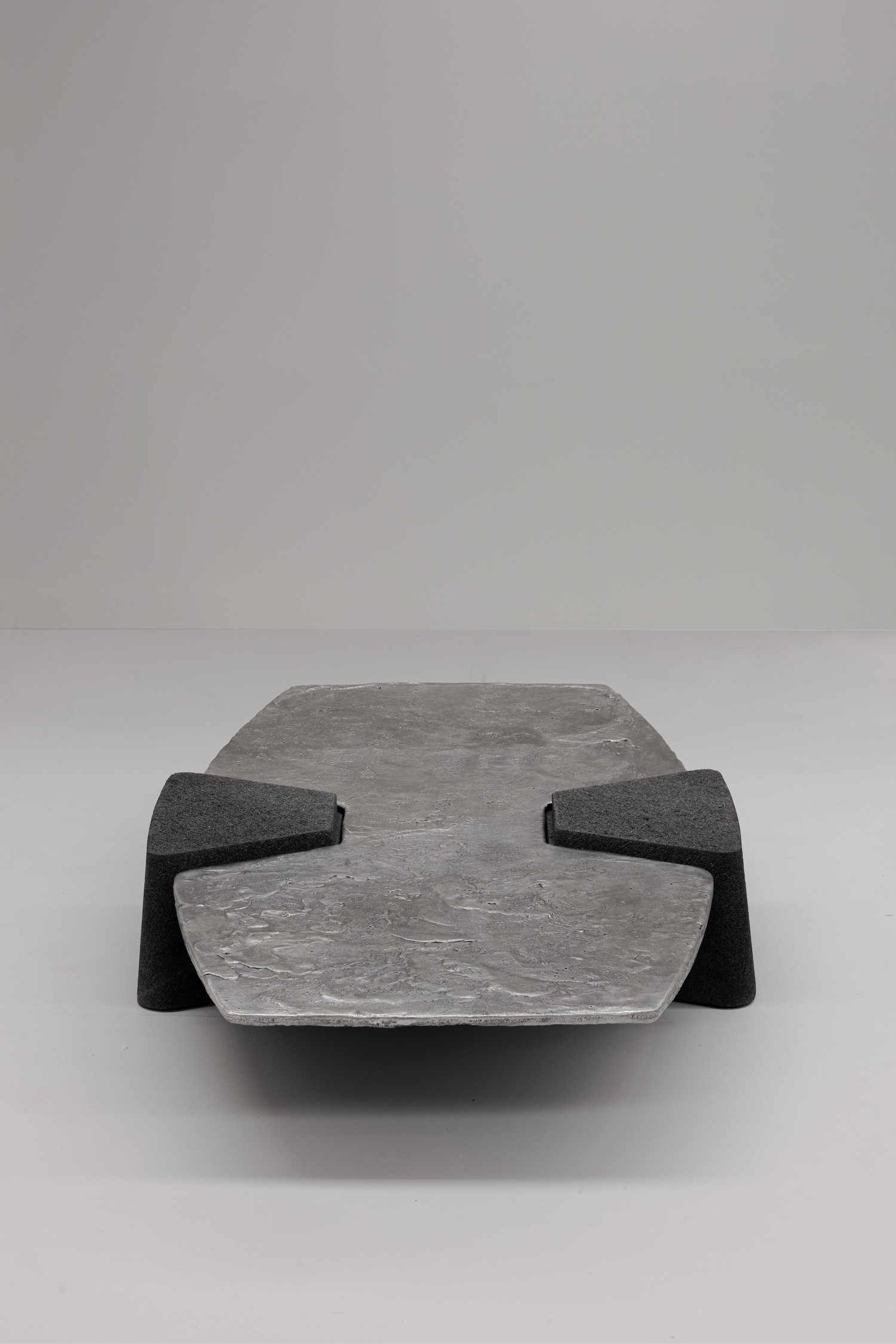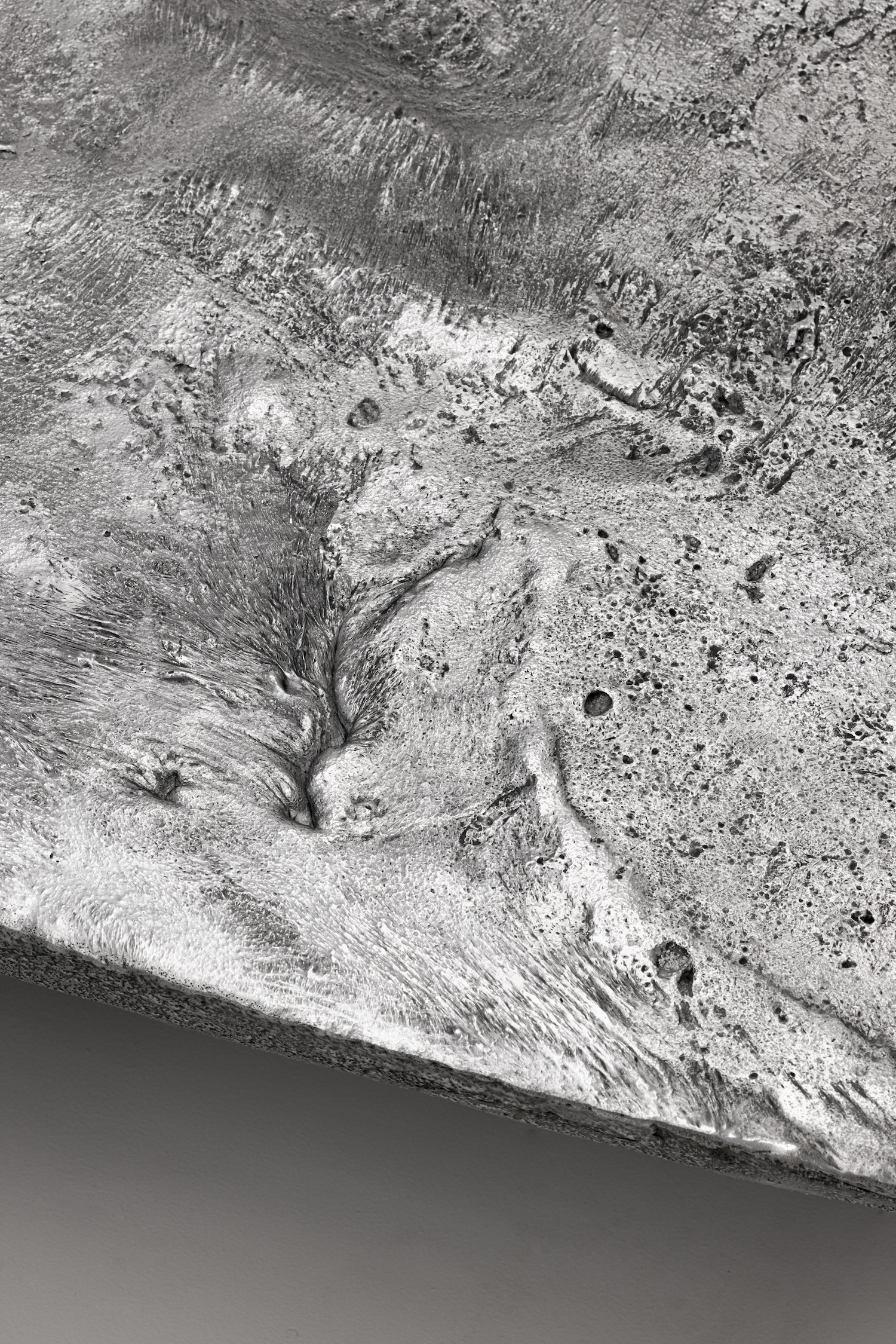Exhuma Coffee Table is a minimalist coffee table created by Mexico City-based practice EWE Studio. The molten aluminum pools in the sand mold, its surface tension creating a perfect mirror that will soon become the top of a coffee table. In this moment of transformation, liquid metal holds the memory of ancient Purépecha furnaces while anticipating its role in contemporary living spaces. This is the essence of EWE Studio’s Exhuma collection, where the casting techniques of western Mexico’s master metalworkers dating back to 900-1000 AD find new expression in furniture that bridges sacred and secular, ancient and modern.
The coffee table that emerges from this process carries profound cultural weight in its deceptively simple form. Its polished aluminum surface rests upon a base carved from volcanic stone, the same material that built the yácatas – those distinctive stepped pyramids that still punctuate the Michoacán landscape. This pairing of materials speaks to a sophisticated understanding of contrast: the pristine, reflective quality of cast metal against the raw, porous texture of volcanic rock creates a dialogue between refinement and earthiness that defined Purépecha aesthetics.
EWE Studio’s approach reveals how traditional craft knowledge can inform contemporary design without resorting to mere appropriation. The studio has meticulously studied the original casting methods, adapting techniques where furnace heat was maintained through long tubes and molten metal was poured into molds placed on hot ashes. Today’s sand molds produce the same fundamental transformation, but serve furniture rather than the tajaderos – those multipurpose copper objects that functioned simultaneously as weapons, currency, and sacred items.
This historical reference point illuminates the collection’s deeper ambition. The tajaderos represented a sophisticated understanding of form following multiple functions, objects that could shift between practical and ceremonial use depending on context. Similarly, the Exhuma pieces navigate between decorative presence and functional necessity, their forms suggesting ritual importance while serving everyday needs.
The volcanic stone bases ground these pieces – quite literally – in geological time. This material connects the furniture to the landscape of Michoacán, where Purépecha architects understood how to harness the region’s volcanic activity for construction. The stone carries visible traces of its formation, creating surfaces that contrast dramatically with the mirror-smooth aluminum above.








